Drawing parallels to David’s battle against Goliath, Delaware is combating a seemingly insurmountable foe – the opioid crisis. Could medical marijuana be the slingshot in this modern-day battle? Preliminary studies suggest it might have potential to address chronic pain without the devastating side effects of opioids. As a Delawarean, wouldn’t you like to understand how this unconventional weapon could help tackle the crisis affecting your community? The answer might be more complex and intriguing than you imagine.
Table of Contents
Understanding Delaware’s Opioid Crisis
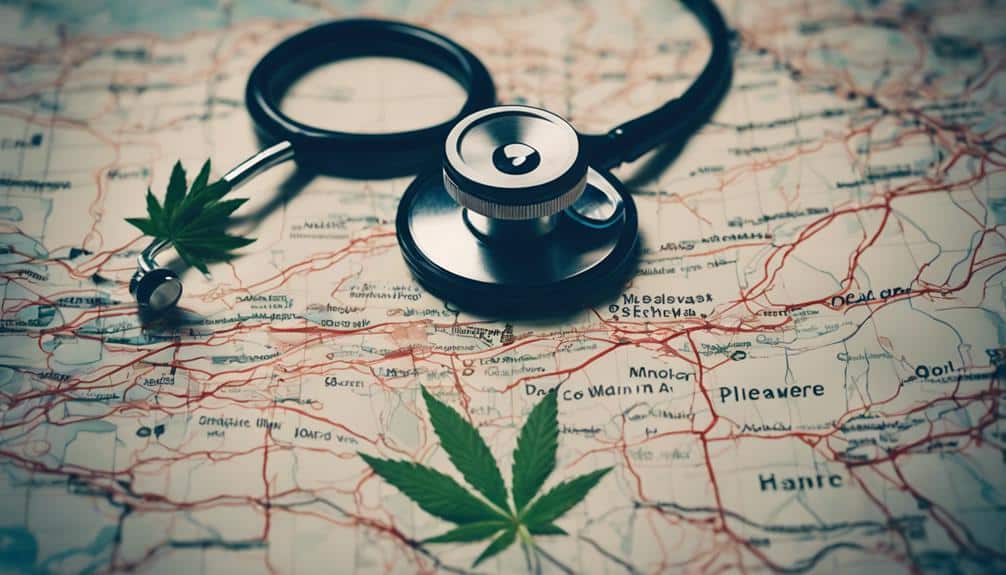
To fully grasp the gravity of Delaware’s opioid crisis, it’s crucial to delve into striking statistics and heartbreaking stories that paint a vivid picture of its devastating impact. The origin of the crisis lies within overprescription of painkillers, leading to dependency and ultimately addiction. From 2016 to 2017, opioid-related deaths in Delaware skyrocketed by 12%, revealing a dire need for effective prevention strategies.
Now, you’re likely wondering, ‘What can be done to combat this crisis?’ It’s essential to approach this problem from various angles including policy reform, education, and alternative pain management methods. By limiting prescription of opioids, we can reduce risk of dependency before it begins. Furthermore, educating public about dangers of opioid misuse can encourage responsible use and discourage misuse.
The Opioids: A Brief Overview
Before diving deeper into solutions, it’s crucial to have a solid understanding of opioids, the potent drugs at the heart of this crisis. Opioids are a class of drugs that includes prescription pain relievers, heroin, and synthetic opioids like fentanyl.
Let’s take a step back and explore the history of opioid origin, which traces back to the 1800s when morphine was first extracted from opium.
- The 19th-century saw widespread use of morphine as a pain reliever.
- By mid-20th-century, semi-synthetic opioids such as oxycodone and hydrocodone were developed.
- The late 20th-century saw a surge in prescription of opioids for pain management, leading to the current opioid crisis.
- Prescription abuse patterns began to emerge as patients became addicted to these potent drugs.
The Consequences of Opioid Dependence
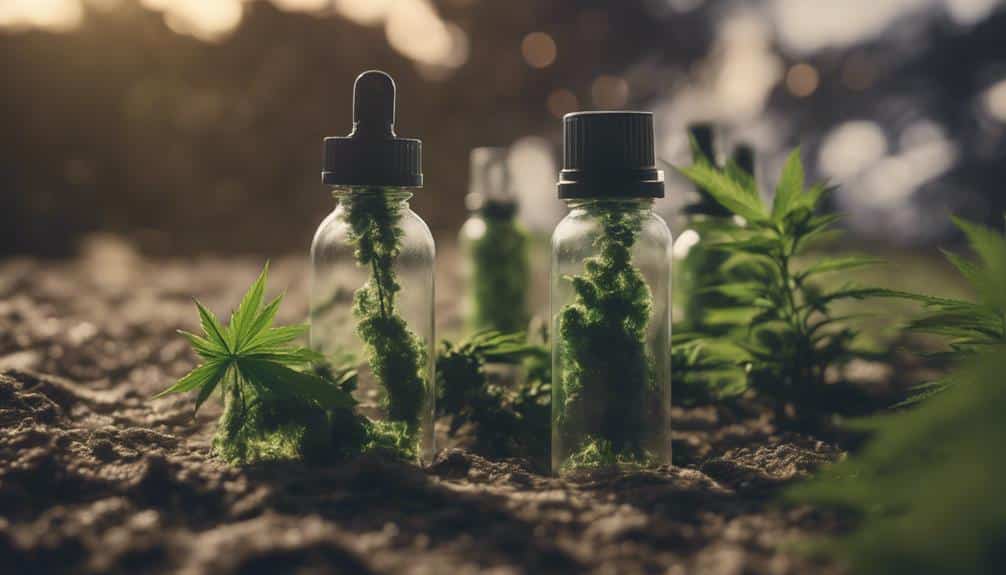
An alarming number of lives have been disrupted by opioid dependence with serious health, social, and economic consequences reverberating across communities. Understanding these consequences is crucial in addressing this issue.
Health-wise, onset of opioid withdrawal symptoms is a significant challenge. As individuals grapple with intense cravings they may experience physical manifestations such as nausea, chills and severe muscle aches. These symptoms while distressing are merely indicators of profound physiological changes occurring within their bodies.
Beyond physical implications are equally troubling social consequences. Relationships strain under the weight of dependence, often leading to isolation. Employment opportunities may narrow, exacerbating an already stressful situation.
The economic impact of opioid dependence is staggering. From medical expenses to lost productivity, the cost isn’t borne by individuals alone but by the community at large. In Delaware, it’s estimated that burden of opioid misuse amounts to billions annually.
Opioid dependence then is more than a personal crisis. It’s a societal problem with far-reaching implications. Addressing it demands comprehensive understanding and compassionate action from all. As we move forward, let’s bring our collective strength to bear on this pressing issue.
Medical Marijuana: An Alternative Solution
As we turn the page on opioid dependence, medical marijuana presents itself as a promising alternative solution potentially offering relief from pain without devastating consequences of opioid addiction. Cannabis cultivation in Delaware is on the rise and patient testimonials reflect profound impact this alternative solution can have.
Consider these key points:
- Medical marijuana can address chronic pain, one of main reasons people turn to opioids with fewer side effects.
- Patient testimonials frequently cite medical marijuana as a game-changer reducing their reliance on opioids and improving their overall quality of life.
- Cannabis cultivation provides a sustainable locally sourced solution to opioid crisis.
- Medical marijuana is becoming more accepted in medical community opening up new avenues for pain management.
You’re in unique position to contribute to this change. By understanding potential benefits of medical marijuana you can better serve those who are suffering. As opioid crisis continues ravaging our communities it’s essential to explore every possible solution. Medical marijuana backed by growing evidence and positive patient testimonials could be vital piece of puzzle.
Scientific Insights Into Medical Marijuana
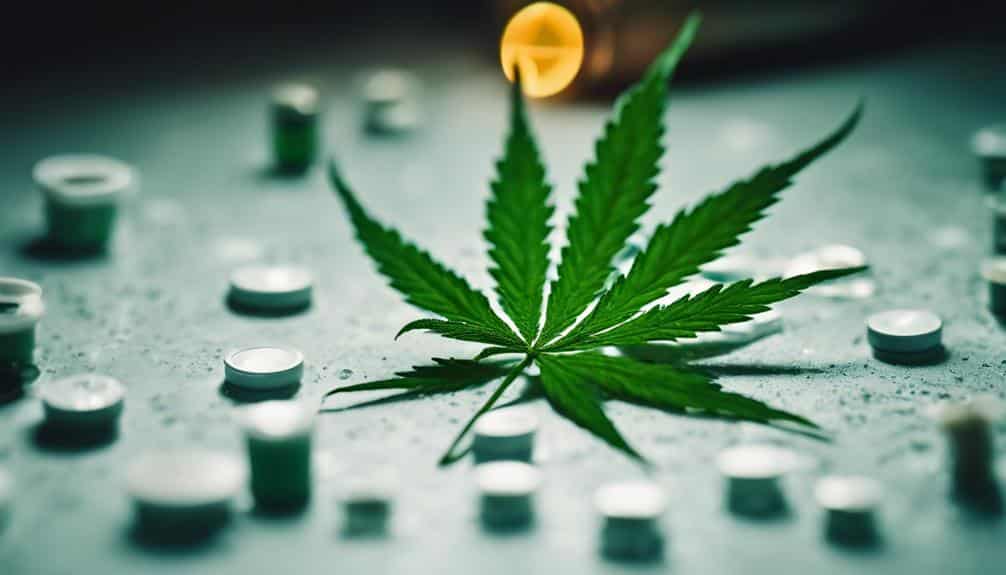
Building on potential benefits of medical marijuana let’s examine scientific evidence that supports its use for pain management. Cannabinoid research has been pivotal in establishing its therapeutic applications particularly in pain relief. Scientists have discovered that cannabis contains over 100 distinct cannabinoids each with unique properties and potential health benefits.
The two primary cannabinoids THC and CBD have been focus of much research. THC is known for its psychoactive properties but it’s also found to have significant analgesic effects. CBD on the other hand doesn’t produce a ‘high’ but has been shown to reduce inflammation and alleviate pain.
Medical marijuana’s effectiveness isn’t just theoretical. Multiple studies have recorded its successful use in treating chronic pain conditions such as neuropathic pain and multiple sclerosis. Furthermore it’s proven to have fewer side effects compared to traditional opioids offering safer alternative for pain management.
Comparing Opioids and Medical Marijuana
When comparing opioids and medical marijuana it’s important to consider their effectiveness side effects and potential for addiction.
In terms of effectiveness both have therapeutic benefits. Opioids are potent pain relievers but also come with significant risk of dependency and overdose. Medical marijuana on the other hand has shown promise as a pain reliever with fewer side effects.
Consider these points:
- Opioids can lead to physical dependence and withdrawal symptoms while marijuana although habit-forming has lower risk of physical dependency.
- Side effects of opioids can include nausea constipation and respiratory depression. Marijuana in contrast may cause dry mouth red eyes and dizziness.
- Overdose is a significant risk with opioids while with marijuana there’s no known lethal dosage.
- Marijuana legislation is pushing for more research and potential use of medical marijuana as an alternative to opioids.
It’s clear that medical marijuana has potential as a safer alternative to opioids but more research is needed. As you serve others in your role stay informed about latest developments in both opioid and marijuana legislation. Your informed perspective can contribute to healthier safer Delaware.
Medical Marijuana’s Potential in Pain Management
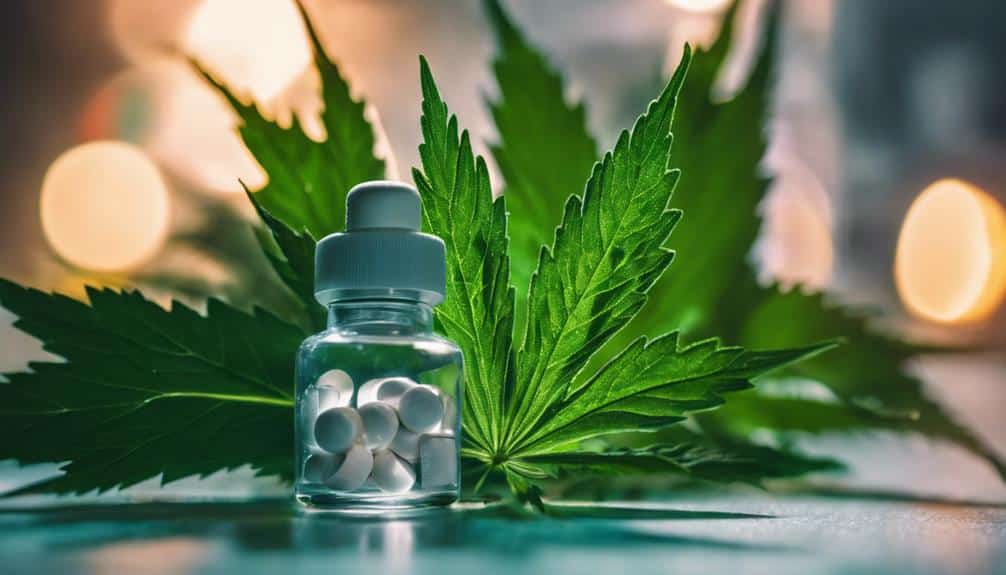
We must consider the potential of medical marijuana in managing chronic pain as emerging studies indicate its effectiveness and safety over traditional opioids. Recent developments in cannabinoid research have paved way for deeper understanding of how medical marijuana can offer viable alternative to opioids. It’s found effective in treating neuropathic pain and has fewer side effects making it better option for long term use.
However patient accessibility challenges exist. Getting a medical marijuana card isn’t always easy and high cost can deter many from trying this alternative. Moreover stigma associated with marijuana use can discourage potential patients. If you’re in healthcare sector it’s crucial to advocate for policies that improve access to medical marijuana and educate public about its benefits and risks.
The opioid crisis in Delaware is complex issue needing multifaceted solutions. As you work towards helping others consider role of medical marijuana in pain management. It’s promising option that could potentially save lives and improve quality of life for many suffering from chronic pain.
Current Legislation on Medical Marijuana in Delaware
Understanding current legislation on medical marijuana in Delaware is key if you’re looking to consider it as alternative for pain management. Delaware has seen both legislative challenges and strides concerning medical marijuana. The law titled ‘Delaware Medical Marijuana Act’ allows qualified patients to use medical marijuana as treatment for their conditions.
To comprehend these regulations better let’s break down current legislation:
- Delaware’s law requires patients to register with state’s medical marijuana program.
- Patients must have condition recognized by state as qualifying condition.
- The law permits registered patients to possess up to six ounces of marijuana.
- However patient accessibility to dispensaries can be difficult due to limited number of operating dispensaries in state.
This legislation has been both praised for its progressiveness and scrutinized for its limitations. Legislative challenges include limited list of qualifying conditions and lack of dispensaries which affects patient accessibility. It’s crucial to understand these laws and their implications to fully grasp role medical marijuana can play in addressing Delaware’s opioid crisis.
The Future of Medical Marijuana in Addressing the Crisis
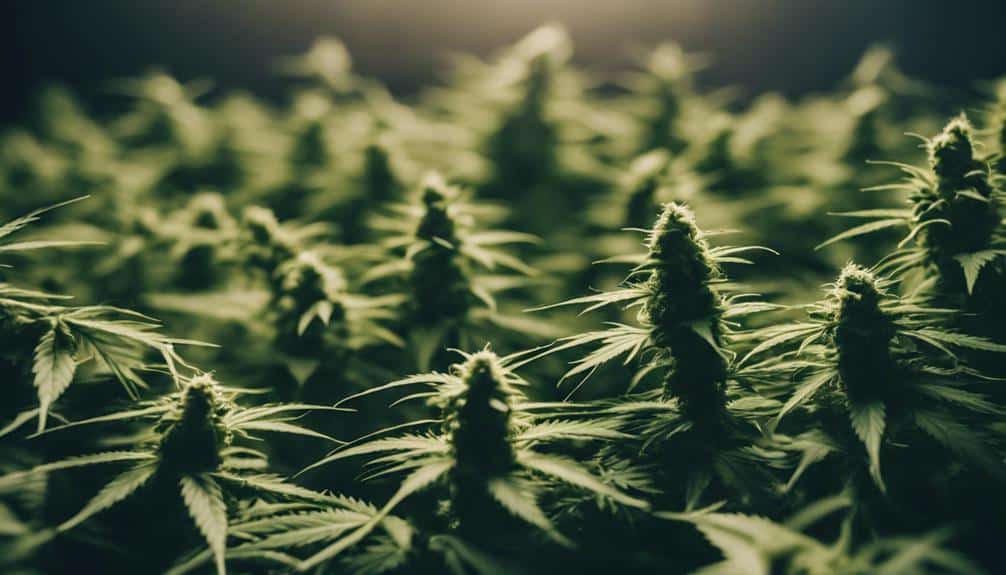
Given current legislative landscape it’s worth considering how medical marijuana could potentially shape future in tackling Delaware’s opioid crisis. Regulatory challenges exist and they’re real ranging from rescheduling marijuana under federal law to refining state regulations on its medical use. It’s crucial to navigate these challenges strategically ensuring marijuana’s accessibility for medical purposes while preventing its misuse.
Funding research is another key aspect. Current studies indicate that medical marijuana could serve as alternative to opioids for pain management potentially reducing opioid misuse and related deaths. However more comprehensive research is needed to fully understand its efficacy and safety. As you strive to serve others you should advocate for increased funding in this area.
In long run integration of medical marijuana into Delaware’s approach could be transformative. It’s not magic bullet but it may provide valuable tool in addressing opioid crisis offering hope to those suffering. However it’s contingent on overcoming regulatory hurdles and investing in research. Future of medical marijuana in addressing crisis is largely dependent on these efforts.
Conclusion
Like lighthouse guiding ships away from danger, medical marijuana could steer Delaware’s opioid crisis towards safer horizon. It offers less harmful alternative for pain management and may reduce opioid dependence. However, to fully harness its potential we need navigate regulatory challenges invest in research and integrate it into our strategy. With medical marijuana we have promising tool combat opioid epidemic turning tide on this devastating crisis.
As a friendly suggestion why not take moment visit Cannabis Docs of Delaware learn more? We’re always here answer your questions guide you through process or give us call at (855) 420-6797 we’re more than happy chat about how medical marijuana could be part solution ongoing opioid crisis so don’t hesitate reach out us today!

